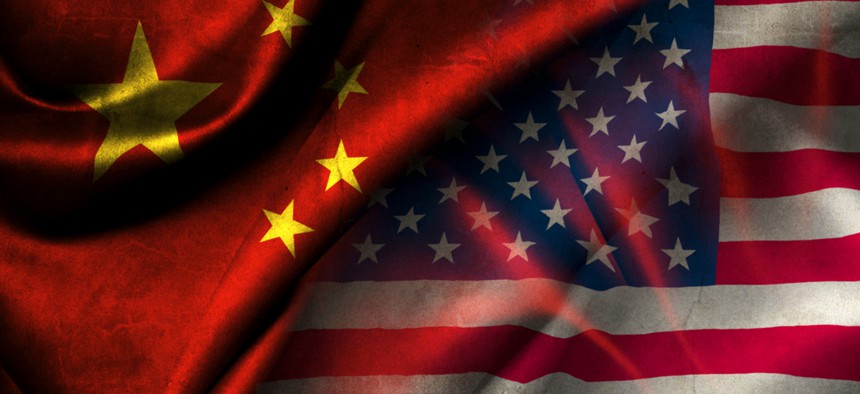The U.S. Is Altering its Visa Policies to Stem China’s Advancement in STEM

Andrew Linscott/Shutterstock.com
The State Department is preparing to shorten the length of the visas it issues to Chinese nationals.
The next potential victims of the U.S. and China’s spat over technology—actual people.
The State Department is preparing to shorten the length of the visas it issues to Chinese nationals, particularly those involved in science, technology, engineering, and mathematics (STEM), the AP reports.
Details are not yet known, but the AP cites an unnamed U.S. official who says that Chinese graduate students will be limited to one-year visas if they’re in high-tech fields, like aviation and robotics. Meanwhile, Chinese nationals who work at companies that are on a special Commerce Department list may also require special visa clearance from multiple U.S. agencies.
Under Donald Trump, Washington has taken several measures to tighten visa issuance. The U.S. Citizenship and Immigration Services, for example, has applied closer scrutiny to individuals applying for the H1-B visa, which lets educated, skilled foreigners work in the U.S. for up to three years at a time.
Yet a crackdown on visa issuance toward Chinese nationals in particular has loomed large recently, as tensions between the U.S. and China escalate. In March, the Wall Street Journal reported that the White House was considering limiting Chinese student visas as part of a larger package of tariffs placed on Beijing.
Meanwhile, the White House has made alleged Chinese theft of U.S. IP in the tech industry a rallying cry amid its trade spat. In its Section 301 report detailing all the factors complicating trade with China, the Office of the United States Trade Representative devoted an entire section on how Chinese actors have conducted cyber intrusions aimed at foreign companies, in an effort steal private business information.
Yet concerns about IP theft have occasionally extended to Chinese nationals living in the U.S. and active in STEM fields, even before Trump took office. In March 2015, former NYU professor and Chinese citizen Yudong Zhu reached a plea deal with prosecutors who accused him doing research with funding from the National Institutes of Health, and sharing it with a Chinese government-backed research institute. And in October 2016, a federal court sentenced Mo Hailong, a Chinese citizen with permanent residence in the U.S., to three years in prison for attempting to steal a type of corn seed (paywall) from DuPont Pioneer.
One of the larger concerns coloring the U.S. trade war with China is Made in China 2025, a directive from Beijing calling for China to become a self-reliant, world leader in high-tech fields like semiconductors and artificial intelligence. Limiting the flow of Chinese nationals into U.S. universities and laboratories might indeed prevent domestic IP from heading to China. But it also ensures that China’s best and brightest students and scientists will remain in China, or go elsewhere—leaving the U.S. to miss out on their contributions.





